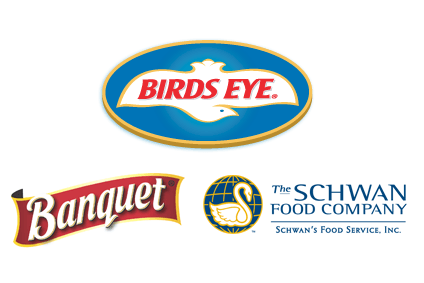
Within a year of being established, Nomad Foods has made waves in Europe's frozen food sector, snapping up Iglo Group and agreeing a deal for much of Findus Group's assets. The UK-listed company is eyeing opportunities in the US. Stefan Kirk, just-food's M&A columnist and advisor at M&A consultants Glenboden, puts forward some possible targets for Nomad.
Some frozen foods acquisition targets for Nomad in the US
Earlier this month, Nomad Foods confirmed it is looking to buy neglected frozen food brands in the US market. There is a string of potential targets for the newly-formed and acquisitive group; the key question is whether they can succeed in buying something that's genuinely been "neglected" and not over-pay for an asset in this environment.

Discover B2B Marketing That Performs
Combine business intelligence and editorial excellence to reach engaged professionals across 36 leading media platforms.
Why the rumoured candidates are not quite right
Most frozen foods brands in the US are well-managed, at least in financial terms, in the hands of private-equity and corporate owners. So, it's possible Nomad will end up paying a high price for a cash-cow asset, especially given the current valuation environment.
Green Giant, the canned and frozen vegetable business that General Mills is reported to be selling, has been touted as a potential target for Nomad. However, given Green Giant's relatively narrow focus on vegetables the clear match for it would be Bonduelle, the French group also centred on vegetables and is on a growth-through-acquisitions trajectory in North America.
Another rumoured target is Bellisio Foods. However that business is relatively small – the MBO at that company in 2011 was backed by a private-equity firm, Centre Partners, that invests in companies with revenues up to US$500m. Also, Bellisio looks like a business that's on a steep growth curve, making several acquisitions and alliances since 2011, and not yet ready for sale.

US Tariffs are shifting - will you react or anticipate?
Don’t let policy changes catch you off guard. Stay proactive with real-time data and expert analysis.
By GlobalDataPinnacle Foods an obvious match
A more obvious acquisition target for Nomad is Pinnacle Foods, with revenues of $2.5bn and a stable of brands that have 85% household penetration. Pinnacle owns brands from Duncan Hines baking mixes to Birds Eye frozen foods. Nomad now owns the Birds Eye brand in Europe after its purchase of Iglo Group in June, the UK-listed group's first acquisition since it was set up by US businessmen Noam Gottesman and Martin Franklin last year.
 |
Pinnacle floated in New York in New York after six years under the control of private-equity firm Blackstone, so it could be argued it is a business in the same mould as Iglo and Findus Group, which Nomad has either bought – or is set to buy – after long-term private-equity ownership.
Any deal for Pinnacle would be purely a numbers game, and here things are problematic, as the company has a very high level of debt (see profile). What's more, if Nomad paid the same EBITDA multiple as it did for Iglo (see valuation), then Pinnacle's enterprise value would be even lower than the group's current market capitalisation of $5bn.
One possible solution would be for management to sell only the frozen half of Pinnacle to Nomad – led by Birds Eye but also including meat-free brand Gardein and Hungry Man frozen dinners and entrees – and use the proceeds to pay down the group’s debt mountain and build shareholder value through the remaining Duncan Hines grocery and speciality foods divisions.
Buying brands from corporates
Moving away from private equity, another option for Nomad would be to approach one or more of the struggling US food majors, and seek to buy individual frozen foods brands from them, presumably with related production facilities and sales capabilities. In other words, to find another General Mills with another Green Giant.
One such candidate that has been in the headlines recently is ConAgra Foods. That group still has a high net debt multiple of EBITDA, and its strategy of selling off its private-label division may yield little cash, given that unit's poor financial performance. ConAgra has recently stated it expects to make additional disposals from its branded consumer foods segment, as it "continues to refine its asset mix".
In such a case, candidates for sale at ConAgra might include Bertolli Italian meals and soups, Banquet chicken products, or Alexia in the very defensible potato products category. From Nomad’s perspective, of key importance will be to also acquire sales capability, along with the trademarks and other IP, from ConAgra.
Perhaps a privately-held jewel
The real prize for Nomad however may not lie in acquiring a financially well-managed brand or portfolio, from private equity or a public corporation, but rather in seeking out a privately-held jewel that meets its definition of "neglected".
One such target could be The Schwan Food Co., which has well-established brands in the attractive frozen desserts and pizza categories, as well as a sales and distribution model with one of the largest direct-to-home units in the US. The group is controlled by the second generation of the Schwan family.
Operating below the radar from an M&A perspective, financial information on the group is not readily available. However it appears annual sales are in long-term decline, down to $3.2bn in 2014. Whether or not the family would or could sell the business is anyone's guess but let's not forget that favourite M&A maxim – few family firms survive as such beyond the second generation.





